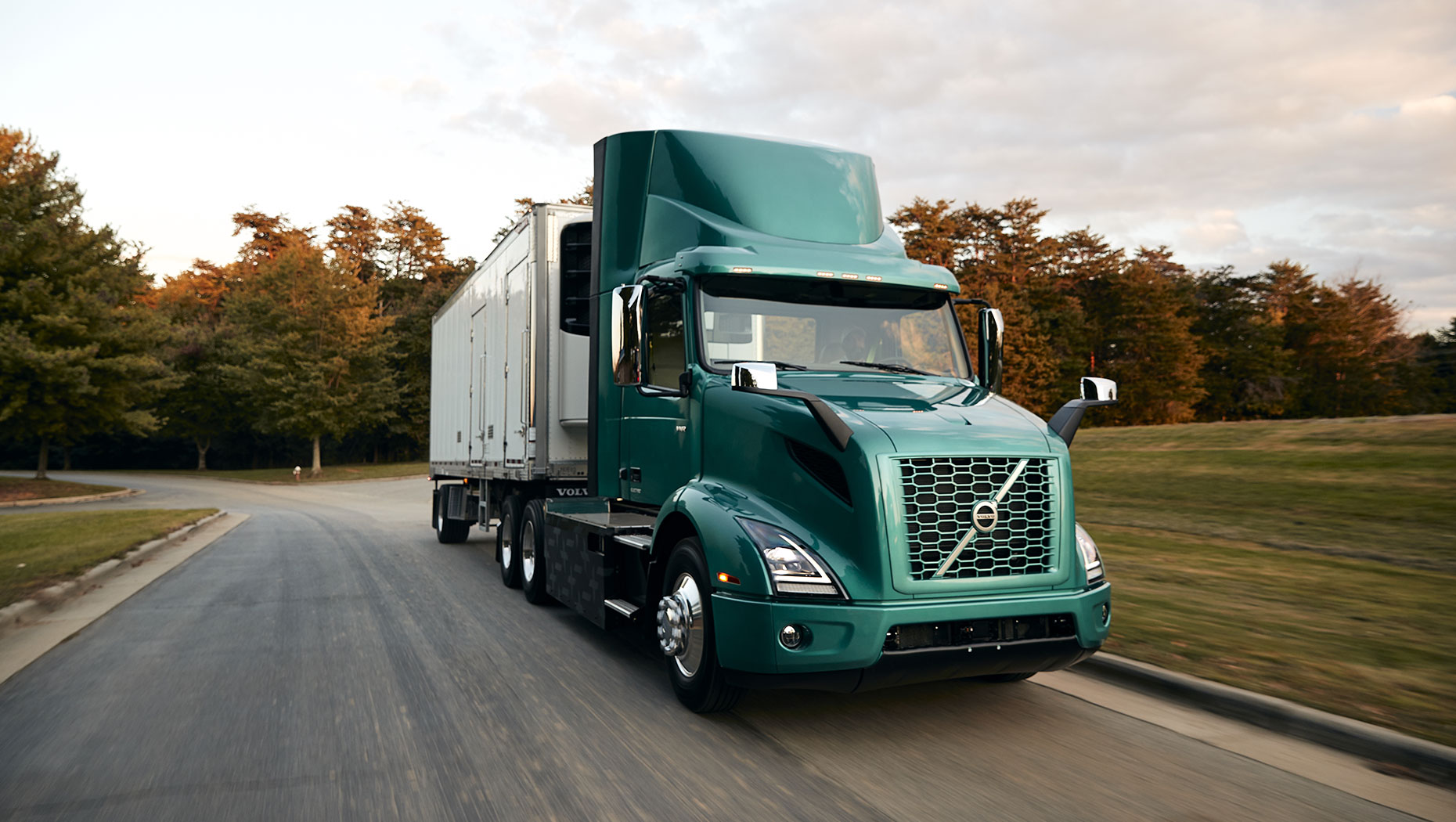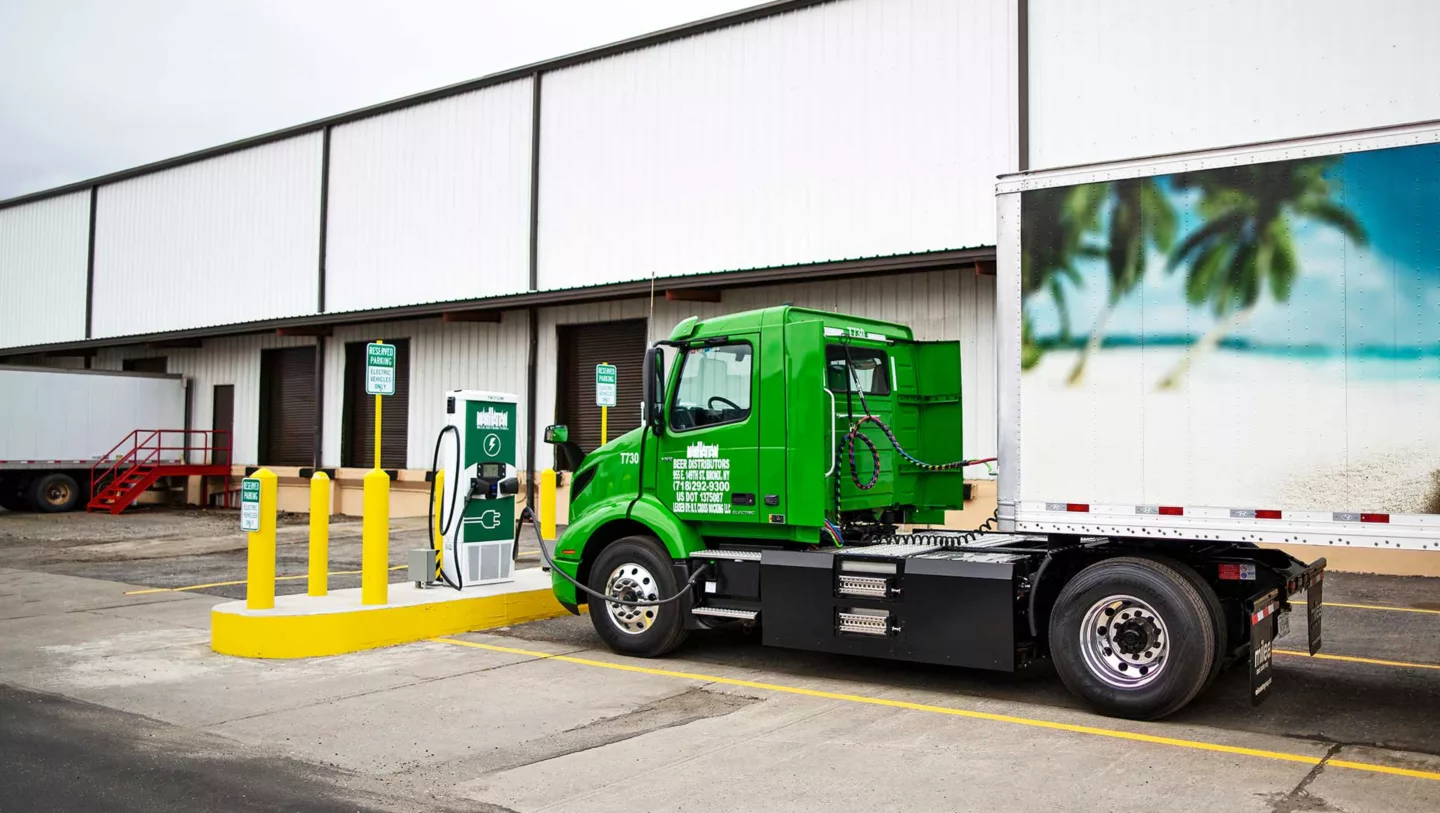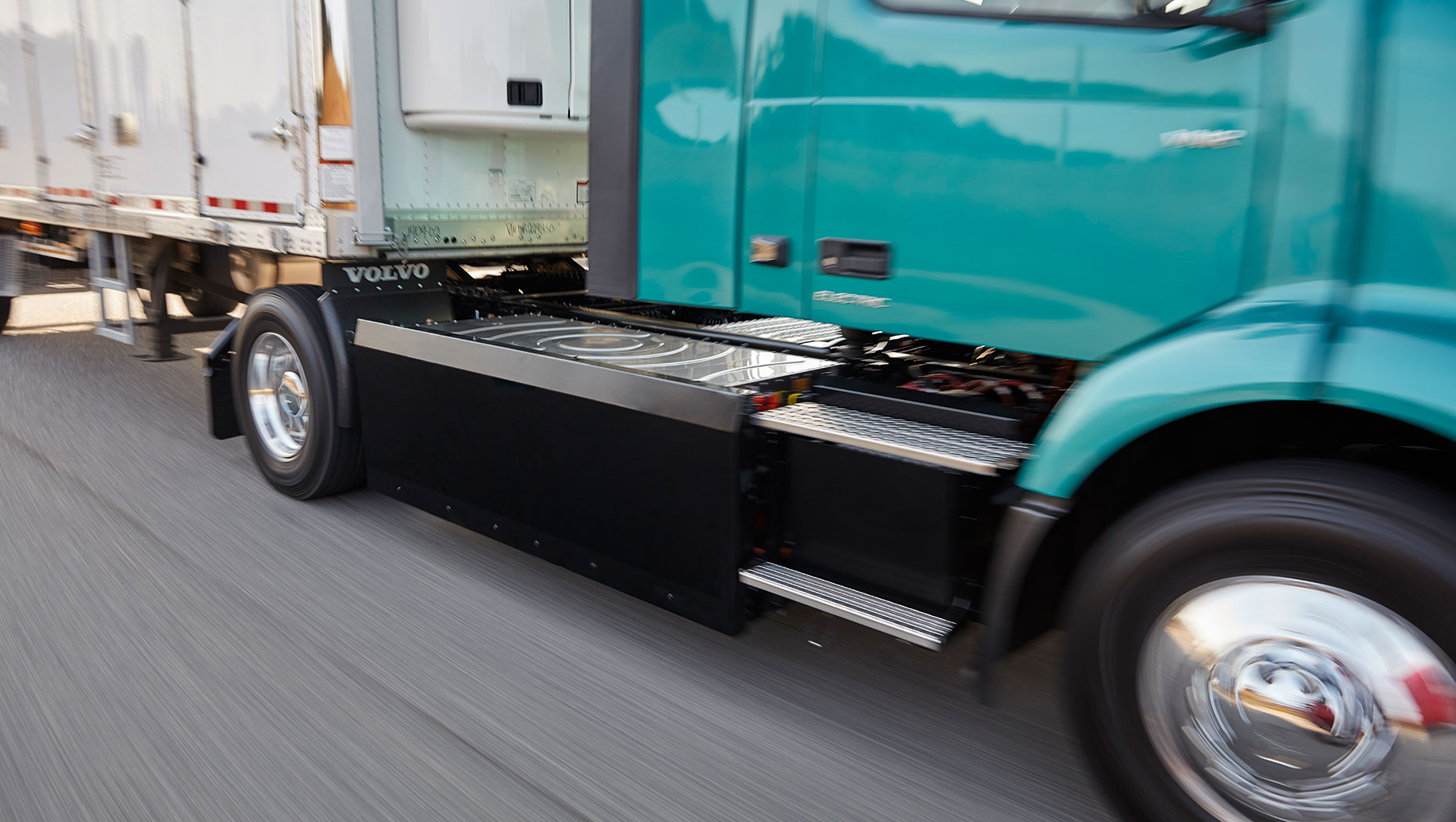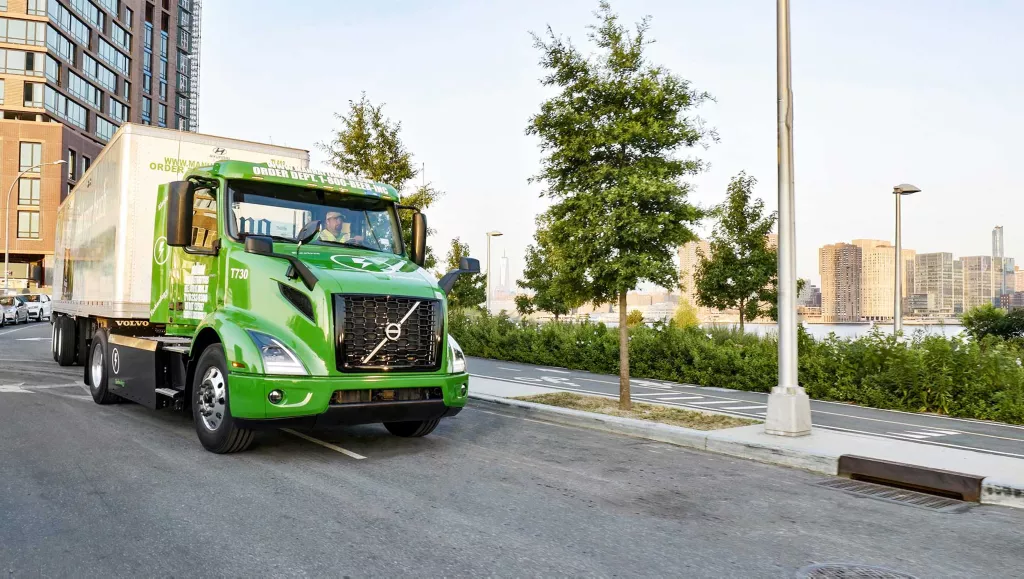On August 12th, Volvo Trucks North America delivered the first batch of Class 8 heavy-duty electric trucks – VNR Electric Trucks to Manhattan Beer Distributors, a local beer distributor on the East Coast.
Class 8 is a weight classification standard for North American trucks, which means the majority of heavy-duty tractor-trailers weighing over 15 tons, such as the character “Optimus Prime” in “Transformers”, are vehicles used for transporting large quantities of goods in North America.
Currently, Volvo has only delivered five VNR Electric Trucks in New York City, which will be used to transport beer and beverages to New York City and surrounding areas. The VNR Electric Trucks delivered this time are the first Volvo VNR Electric models manufactured at the Volvo Trucks plant in Dublin, Virginia, which is responsible for assembling all Volvo trucks sold in North America.

Manhattan Beer Distributors also held a news conference with the New York City Department of Transportation at its warehouse in the Bronx to commemorate the delivery.
To meet the charging needs of electric trucks, Manhattan Beer Distributors has installed three DC fast charging stations at its Bronx factory, which can charge the VNR Electric Trucks to 80% capacity in 70 minutes.

As one of the largest beverage distributors in the United States, Simon Bergson, the founder, president, and CEO of Manhattan Beer Distributors, said: “Volvo Trucks has always supported our sustainable development goals and has proven that their low-emission and zero-emission trucks meet our expectations for safety, performance, and reliability.” He hopes to continue to expand his zero-emission fleet by gaining experience from the first five VNR Electric Trucks and working with Volvo Trucks and local Volvo truck dealers.In addition, Manhattan Beer Distributors has received partial funding for the Volvo VNR electric truck through the “New York Clean Energy Truck Program” from the New York State Volkswagen Settlement Fund.

Compared with traditional large-displacement heavy-duty fuel haulage trucks, dragging large vehicles and heavy loads will inevitably bring about significant emission pollution. The transition from fuel trucks to electrification also conforms to the current global emission reduction policies and the trend of electrification. However, currently, the electrification of trucks is indeed “a new runway”, which is more environmentally friendly, and has lower maintenance costs in later stages, etc.
But according to data released by Volvo, the battery capacity of the VNR electric truck is currently 264 kWh, and the maximum cruising range when fully charged is 240 km. If you want to charge to 80% within 70 minutes, we can do a simple calculation. The charging pile must maintain an output power of more than 180 kW for a long time, but due to the characteristics of lithium-ion batteries, the charging power is lower when the battery power is higher. Therefore, almost every fast charging pile needs to reach 200 kW or so to meet the charging speed requirements. Therefore, the transportation range of this batch of electric trucks is still relatively limited, and they can only transport beer and beverages in fixed short-distance routes. If you want to expand the electric transportation network, you still need to solve the problem of a large demand for power supply.
Similarly, the Tesla electric truck Semi is still far from formal implementation. Electric trucks seem to be a long way from entering our lives. Perhaps establishing an environmentally friendly brand image and promoting electrification of transportation by the government are currently more significant.

🔗Source: Volvo
This article is a translation by ChatGPT of a Chinese report from 42HOW. If you have any questions about it, please email bd@42how.com.
